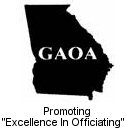"How to Form a 501(c)(3) or (4) Non-Profit Organization"
"There are many local sports associations that are doing the right thing.
Question is...how many are not a legal business entity?"
"There are many local sports associations that are doing the right thing.
Question is...how many are not a legal business entity?"
1. Understand that a Non-Profit Organizations (NPO) are a state-issue only, legally constituted whose objective is to support or engage in activities of public or private interest without any commercial or monetary profit.
2. Create a mission statement. This should be a one to two sentence expression of who the organization is and what its purpose is. It should be unique to your organization as it will be used in all public forums in regards to the organization.
3. Form a Board of Trustees. Before naming your board you should decide what qualities and skills you desire for the individuals on the Board.
4. Consult with an experienced attorney to file for state Certification of Incorporation. The attorney can also help file for an IRS Determination Letter. There are many mistakes people make when they try to incorporate and submit IRS Form 1023 by themselves. DIY only if you have legal expertise. You do not want to make any mistakes when filing for an IRS Determination Letter. It can take up to six (6) months for you to be notified. And if the form has errors or omissions, you have to start all over again. From date of incorporation, the IRS gives an organization 15 months to file for Determination Letter, as Articles of Incorporation are the official statements of creation for the organization and protects the board and staff from legal liabilities.
5. Draft bylaws for your association. Bylaws are the rules by which your association operates. These should be drafted with the aide of an attorney.
6. Developing a budget is often considered one of the most challenging tasks in creating a non-profit organization. For new organizations start by looking at potential income in figuring out how much money you have to spend.
7. It is very important to develop a record-keeping system to ensure that all Board documents, including minutes and financial statements are saved. Your organization's bylaws and Articles of Incorporation should also be preserved in a secure place.
8. Work with an accountant to develop an accounting system for the organization. Because Non-Profits are accountable to the public, responsible financial management that meets both current and anticipated needs is crucial.
9. Seek an experienced attorney in filing for 501(c)(3) status, as the application is an important legal document. Apply for tax-exemption status (Form 1023) and follow the detailed instructions.
10. Apply with the IRS for a federal employer identification number. This number is used to identify the organization when tax documents are filed and is used like an individual's social security number.
11. File for state and local tax exemption from income, sales and property taxes.
12. Develop a conflict of interest policy.
13. Include a "Whistle Blower" article in your bylaws. The key phrase in WB policy is the text about the blower notifying the corporation and giving them time to resolve. It protects the corporation from a renegade fraudster and any claims the the corporation didn't act in time.
14. Maintain good corporate records of all business.
15. Have bylaws properly endorsed and signed by 2 members of the board (president and secretary) and witnessed by two at-large members.
Problem Areas
There are many ongoing problems faced by non-profit organizations and local sports officials associations. Congress and the IRS perceive a great deal of fraud and non-reporting in the area of charitable giving and have a great deal of concern about taxpayers avoiding their legal obligations. As a result, the Pension Act of 2006 details the significant changes in the laws that deals with charitable organizations. These recent tax law changes are broadly ranged into several categories:
1. Greatly increased information sharing between the IRS and state governments on exempt organizations.
2. Greatly increased regulation and scrutiny of donor-advised funds.
3. Greatly increased regulation and scrutiny of supporting organizations.
4. Increased and more detailed reporting requirements in charitable information returns, including Form 990, with
5. Reporting requirements extended to more charitable organizations.
6. Increased penalties for self-dealing, excess benefit transactions, fraud and abuse.
7. Increased reporting and scrutiny of in-kind and cash donations, with greater requirements for appraisals and receipts.
NOTE: While IRS directives do not address local sports officials associations directly in its publications. These associations must follow the guidelines established for charity organizations. A local associations gross income is generated from 1099 contracting services, membership dues, registration fees, fines, etc.
More reasons for a local sports association leadership to consult with an attorney and public accountant. I was once told, "We have been during it this way for a few years, we know what we are doing". Wanna bet??
Unless you have legal experience and accounting skills, an association should seek professionals, who know what they are doing. Membership dues should be used to cover an association's operating expenses per sport season, not to be pocketed by the board of directors without being voted on by the general membership.
Does the board deserves compensation each year? NO!! This item must not be automatic for each season sports events, the general membership should vote to compensate their board of directors. Did the board conduct association's business in a orderly matter? Board of directors that operate with the hammer and sickle must not be compensated.
2. Create a mission statement. This should be a one to two sentence expression of who the organization is and what its purpose is. It should be unique to your organization as it will be used in all public forums in regards to the organization.
3. Form a Board of Trustees. Before naming your board you should decide what qualities and skills you desire for the individuals on the Board.
4. Consult with an experienced attorney to file for state Certification of Incorporation. The attorney can also help file for an IRS Determination Letter. There are many mistakes people make when they try to incorporate and submit IRS Form 1023 by themselves. DIY only if you have legal expertise. You do not want to make any mistakes when filing for an IRS Determination Letter. It can take up to six (6) months for you to be notified. And if the form has errors or omissions, you have to start all over again. From date of incorporation, the IRS gives an organization 15 months to file for Determination Letter, as Articles of Incorporation are the official statements of creation for the organization and protects the board and staff from legal liabilities.
5. Draft bylaws for your association. Bylaws are the rules by which your association operates. These should be drafted with the aide of an attorney.
6. Developing a budget is often considered one of the most challenging tasks in creating a non-profit organization. For new organizations start by looking at potential income in figuring out how much money you have to spend.
7. It is very important to develop a record-keeping system to ensure that all Board documents, including minutes and financial statements are saved. Your organization's bylaws and Articles of Incorporation should also be preserved in a secure place.
8. Work with an accountant to develop an accounting system for the organization. Because Non-Profits are accountable to the public, responsible financial management that meets both current and anticipated needs is crucial.
9. Seek an experienced attorney in filing for 501(c)(3) status, as the application is an important legal document. Apply for tax-exemption status (Form 1023) and follow the detailed instructions.
10. Apply with the IRS for a federal employer identification number. This number is used to identify the organization when tax documents are filed and is used like an individual's social security number.
11. File for state and local tax exemption from income, sales and property taxes.
12. Develop a conflict of interest policy.
13. Include a "Whistle Blower" article in your bylaws. The key phrase in WB policy is the text about the blower notifying the corporation and giving them time to resolve. It protects the corporation from a renegade fraudster and any claims the the corporation didn't act in time.
14. Maintain good corporate records of all business.
15. Have bylaws properly endorsed and signed by 2 members of the board (president and secretary) and witnessed by two at-large members.
Problem Areas
There are many ongoing problems faced by non-profit organizations and local sports officials associations. Congress and the IRS perceive a great deal of fraud and non-reporting in the area of charitable giving and have a great deal of concern about taxpayers avoiding their legal obligations. As a result, the Pension Act of 2006 details the significant changes in the laws that deals with charitable organizations. These recent tax law changes are broadly ranged into several categories:
1. Greatly increased information sharing between the IRS and state governments on exempt organizations.
2. Greatly increased regulation and scrutiny of donor-advised funds.
3. Greatly increased regulation and scrutiny of supporting organizations.
4. Increased and more detailed reporting requirements in charitable information returns, including Form 990, with
5. Reporting requirements extended to more charitable organizations.
6. Increased penalties for self-dealing, excess benefit transactions, fraud and abuse.
7. Increased reporting and scrutiny of in-kind and cash donations, with greater requirements for appraisals and receipts.
NOTE: While IRS directives do not address local sports officials associations directly in its publications. These associations must follow the guidelines established for charity organizations. A local associations gross income is generated from 1099 contracting services, membership dues, registration fees, fines, etc.
More reasons for a local sports association leadership to consult with an attorney and public accountant. I was once told, "We have been during it this way for a few years, we know what we are doing". Wanna bet??
Unless you have legal experience and accounting skills, an association should seek professionals, who know what they are doing. Membership dues should be used to cover an association's operating expenses per sport season, not to be pocketed by the board of directors without being voted on by the general membership.
Does the board deserves compensation each year? NO!! This item must not be automatic for each season sports events, the general membership should vote to compensate their board of directors. Did the board conduct association's business in a orderly matter? Board of directors that operate with the hammer and sickle must not be compensated.




